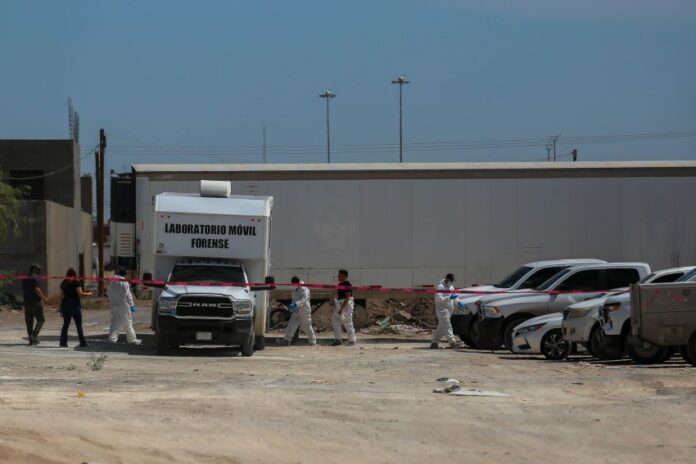The owner of a private crematorium in Ciudad Juárez where 383 bodies were left in piles to decompose has been arrested along with his sole employee.
The attorney general of Chihuahua, César Jáuregui Moreno, announced that José Luis Arellano Cuarón, the owner of the Plenitud crematorium in the Granjas Polo Gamboa neighborhood of Ciudad Juárez, and Facundo Martínez Robledo, an employee, were detained on Sunday.
A judge ruled that the two men must remain in preventive prison ahead of a court hearing on Friday. They face charges related to the improper handling of cadavers. If convicted on all counts, they face prison sentences of a minimum of eight and a maximum of 19 years.
Jáuregui said that the crematorium provided (or was supposed to provide) cremation services to six funeral homes in Ciudad Juárez, located on Mexico’s northern border opposite El Paso, Texas.
The 383 bodies found in the crematorium were “received by funeral homes, the mourning of families was carried out there and subsequently this company picked up the bodies to carry out the cremation service, which it didn’t do,” the attorney general said.
He said that the crematorium most probably charged the funeral homes for cremation services, but just left the bodies to pile up in its facilities.
Mexican police have discovered more than 350 corpses piled up, embalmed and abandoned at a private crematorium in Ciudad Juarez, local prosecutors reported pic.twitter.com/YrS8ma65Pw
— Reuters (@Reuters) July 2, 2025
Given that the bodies were taken to funeral homes by families, it is unlikely that any of them are of missing persons, Jáuregui said.
“In any case, each and every one of them will be investigated so that there is no doubt about the origin of the bodies. I think it will be difficult to determine how long they were there in the crematorium because all of them had funerary treatment [embalming],” he said.
“… The investigation will be sufficiently exhaustive to first provide dignity to these bodies, secondly to identify them [and] thirdly to provide them with the fate that their relatives decide,” Jáuregui said.
He also said that the investigation will look beyond the crematorium owner and employee to determine whether anyone else is guilty of negligence and/or criminal behavior. Officials responsible for inspecting such facilities and ensuring their compliance with applicable laws could be among those investigated. The crematorium had the permits required to operate.
Corpses ‘stacked’ in various rooms at crematorium
The 383 bodies found at the Ciudad Juárez crematorium were piled up in five or six rooms and in its yard, according to Jáuregui. Authorities discovered them last Thursday after receiving a report from a citizen about foul smells in the area. The bodies of four minors, including two babies, were found at the crematorium.
The Chihuahua Attorney General’s Office (FGE) announced on Monday that a total of 383 embalmed bodies were piled up at the crematorium. Some of them had been there for as long as five years, according to the FGE.
Eloy García, spokesperson for the FGE, told the AFP news agency that the cadavers were “stacked” in no apparent order.
They were “just thrown like that, indiscriminately, one on top of the other, on the floor,” he told AFP.
‘Unprecedented drama’: Prosecutor describes hell-like scene of 383 bodies in Juárez crematorium https://t.co/9P7FN6lLtx
— El Paso Times (@elpasotimes) July 1, 2025
García said that relatives of the deceased were given “other material” in lieu of ashes.
According to AFP, the FGE spokesperson “alleged ‘carelessness and irresponsibility’ by the crematorium owners, adding that all such businesses ‘know what their daily cremation capacity is.'”
“You can’t take in more than you can process,” García said.
Marcelo Ruiz, representative of the Ciudad Juárez Funeral Homes Union, said that it was not the first time that bodies were left to pile up in a crematorium in the border city, noting that there was a similar case in which 63 decomposing bodies were found during the COVID pandemic.
With reports from El Universal, Excélsior, AFP and El País
